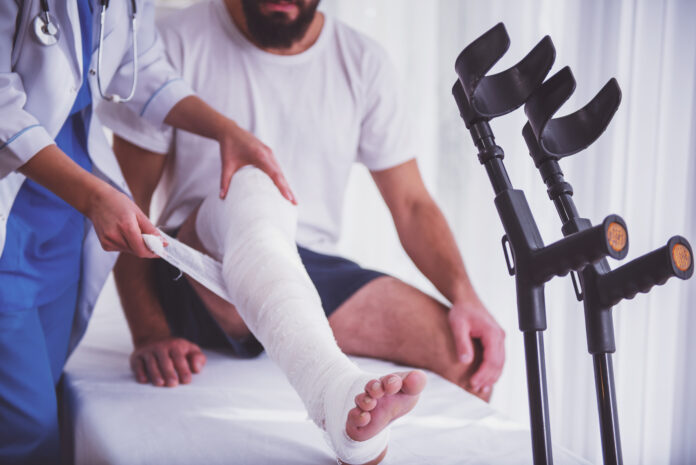Surgery can be a scary process, especially if it’s your first time. The first 24 hours after the procedure are crucial for recovery and proper wound healing, and there are certain steps that should be taken to ensure a successful recovery. In this guide, we’ll cover some essential aspects of post-surgical care and provide tips to help you or your loved one recover comfortably. Whether it’s a major surgery or a minor procedure, following these guidelines can make a significant difference in the overall recovery
Before the Surgery
Before even going into the operating room, it’s important to be prepared for what lies ahead. This includes making arrangements for transportation home, having a comfortable recovery space set up at home, and planning meals and medications for the next day. It’s also crucial to follow any instructions given by your doctor regarding fasting, medication dosage, and pre-surgical hygiene. Be sure to ask any questions or express any concerns you may have before the surgery so that you can feel more at ease going into the procedure.
Immediately After
After your surgery is completed, you will be taken to a recovery room where medical staff will monitor your vital signs and ensure that you are comfortable. You may experience drowsiness, grogginess, or nausea due to the anesthesia, so be sure to communicate any discomfort to your medical team. In some cases, you may need to stay at a hospital for special surgery rehab to get your recovery underway.
Once you are cleared for discharge, make sure to have a friend or family member accompany you home and stay with you during the first 24 hours. This person can assist with tasks such as getting in and out of bed, preparing meals, and helping with medications.
While you’re recovering, you need to avoid certain activities that could hinder your recovery. These include driving, lifting heavy objects, and engaging in strenuous physical activity. Don’t forget to follow any dietary restrictions or medication instructions given by your doctor. Ignoring these guidelines can lead to complications and prolong the recovery process.
Managing Pain
Pain management is a crucial aspect of post-surgical care, especially when discomfort levels may be at their highest. Your doctor will likely prescribe pain medication to help alleviate any pain or discomfort you may experience. Be sure to take these medications as directed and not to wait until the pain becomes unbearable.
In addition to medication, there are other ways to manage pain such as applying ice packs, using relaxation techniques, and maintaining proper body positioning. Be sure to discuss with your doctor which methods may be most suitable for you.
Your Mental and Emotional Well-Being
Recovering from surgery not only takes a physical toll, but it can also affect one’s mental and emotional well-being. It’s common to experience feelings of anxiety, fear, or even depression during the recovery process. To help cope with these emotions, it’s essential to have a support system in place. This can include friends, family, or even support groups where you can share your experiences and receive encouragement.
Taking care of your mental and emotional health also means taking time for yourself. Engage in activities that bring you joy and relaxation, such as reading, listening to music, or practicing mindfulness exercises. It’s essential to listen to your body and not push yourself too hard during this time.
The wound from surgery will require proper care to prevent infection and promote healing. Your doctor will provide specific instructions for caring for the wound, such as changing dressings or applying ointments. Be absolutely certain to follow these instructions carefully and keep the wound clean and dry. If you notice any signs of infection such as redness, swelling, or discharge from the wound site, contact your doctor immediately.
Rest and Nutrition
Rest is crucial for the body to heal after surgery, so you need to schedule plenty of downtime. This may mean taking naps throughout the day and avoiding strenuous activities. In addition to rest, proper nutrition is also essential for a speedy recovery. Be sure to have healthy and easily-digestible meals prepared ahead of time, as well as plenty of water to stay hydrated.
Follow-Up with Your Doctor
Finally, make sure to schedule a follow-up appointment with your doctor within the first 24 hours after surgery. This will provide an opportunity for your doctor to assess your progress and address any concerns or complications that may have arisen during the first day of recovery.
It’s completely normal to feel anxious or afraid when facing surgery, but having all the necessary information can help ease those fears. Don’t be afraid to ask questions before and after your procedure. Your doctor and medical team are there to guide you through the recovery process and address any concerns you may have. Remember that your health is the top priority, so it’s important to fully understand your procedure and any post-surgical instructions given to you. Asking questions can also help you feel more in control of your recovery and ultimately lead to a smoother healing process.
Following these guidelines and staying in communication with your doctor can greatly improve the success of your post-surgical recovery. Remember to take it easy, prioritize rest and nutrition, and don’t hesitate to reach out for help if needed. With proper care during the first 24 hours, you’ll be on your way to a speedy and successful recovery. Good luck out there!















